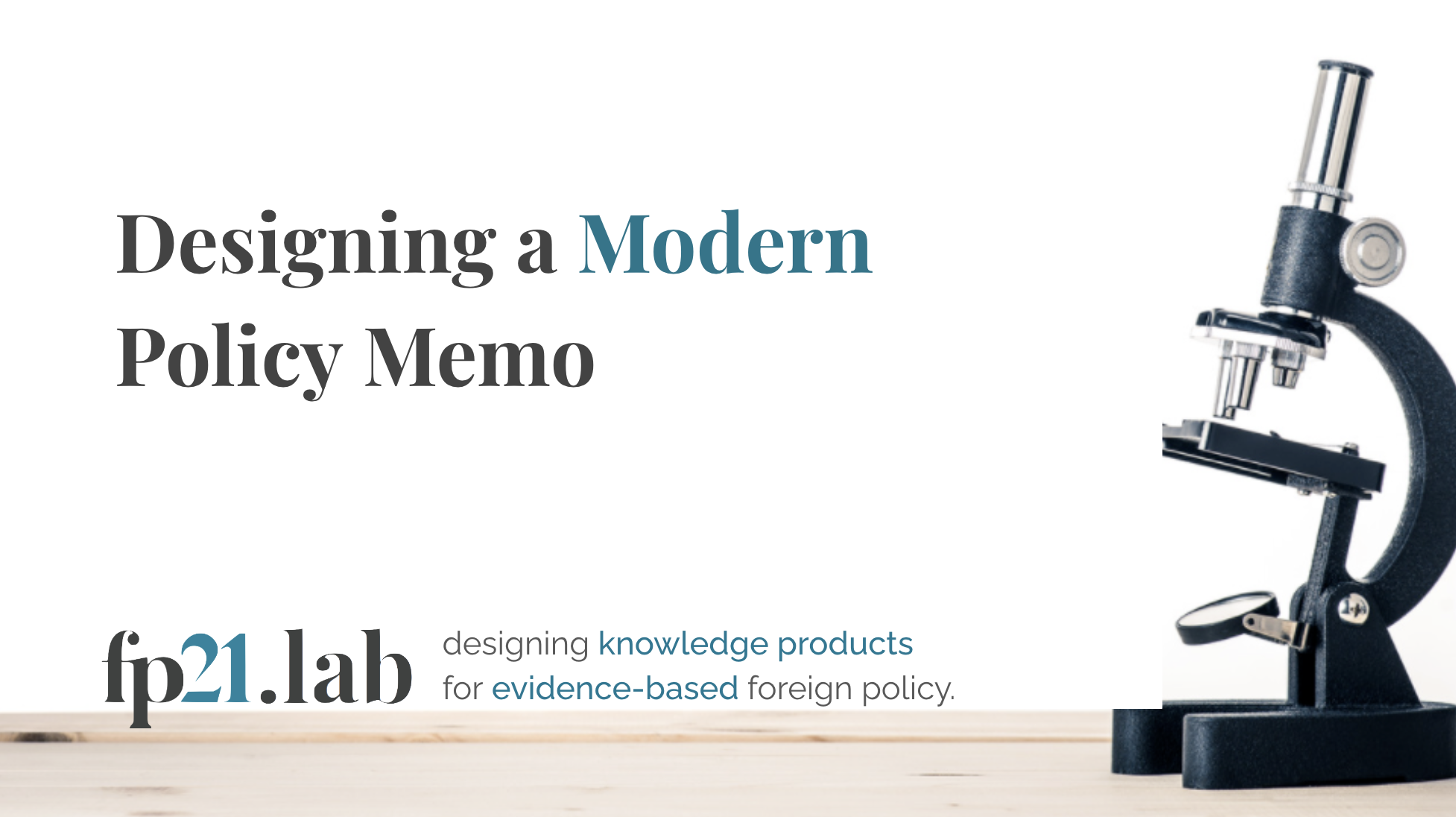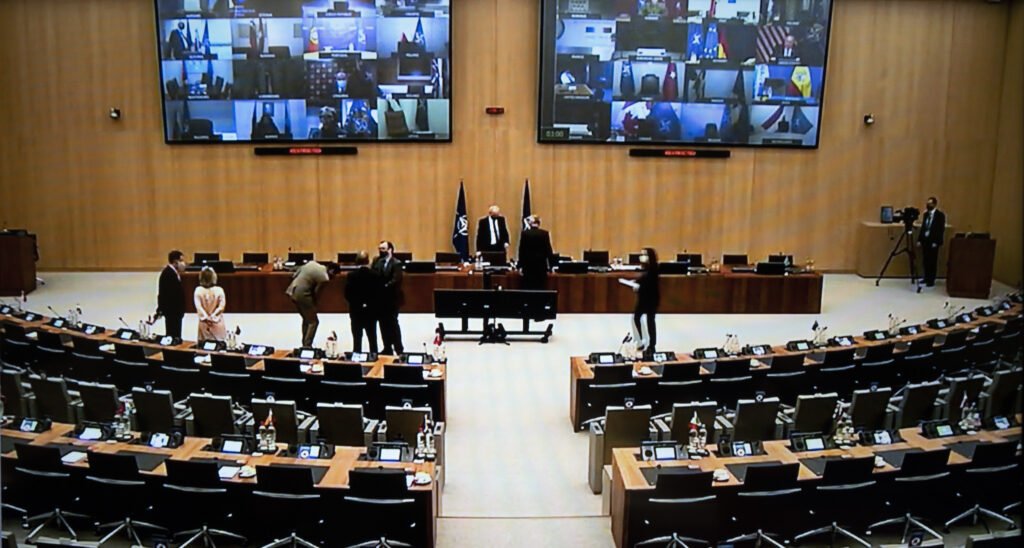Publications
fp21 is building a new culture of foreign policy. Explore our publications below.

Forecasting in Policymaking: Beyond Cassandra
Dan Spokojny: All policy decisions are built on assumptions about the future. Yet many of the assumptions underlying policy pronouncements remain ambiguous and under-evaluated. Formalizing these assumptions can allow us to test the quality of our policy process and potentially improve its effectiveness. This post develops and evaluates four models for integrating forecasting methods into the policymaking process.

The Bayes Brief: Designing a Modern Policy Memo Process
Alex Bollfrass & Ellice Huang: Respected State Department observers complain that “clearance hell” weakens American diplomacy. The Bayes Brief re-imagines the humble policy memo and clearance process by capturing and summarizing evidence in a systematic format conducive for policy success in the information age. It is a simple intervention into the policy process that could positively impact the effectiveness of U.S. foreign policy.

Doctrine for Diplomacy: To Remain Relevant, the U.S. State Department Needs a New Statecraft
Dan Spokojny: Many diplomats suggest that policy effectiveness arises from an elusive combination of good judgment and hard-earned experience. But good foreign policy must be more than simply a matter of taste. The military has doctrine. The intelligence community has tradecraft. Diplomacy has not kept pace. It is time to start treating the conduct of diplomacy as a profession with its own standards, methodologies, and skills: statecraft.

